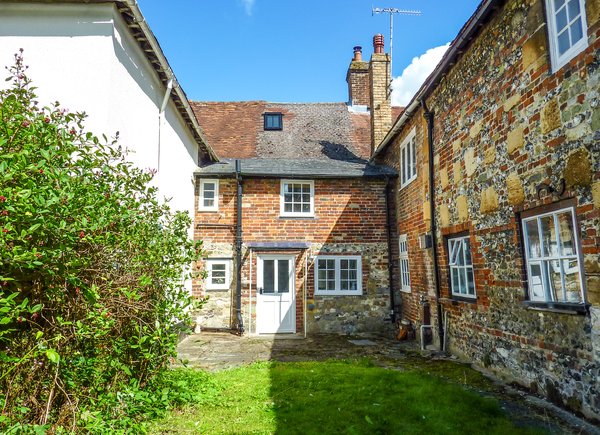I’ve been in the industry for over 20 years and I never get bored of being asked questions about letting! Here are just a few of the questions most commonly asked by Landlords.
I want to let my property. Do I need to tell my mortgage lender?
Yes. Your mortgage lender needs to give you permission before you can let your property, and they may impose special conditions. If you are buying a property with the intention of letting it out, you may be able to obtain a buy to let mortgage.
How do I know what rent to charge?
Ask a letting agent to value your home. Piccolo Property are experts in the market, so we can advise you how other rental properties are doing in the area, and what kind of yield you can hope to expect.

How much will it cost me to let my property?
This really depends on how much support you need. At Piccolo we offer 2 main service levels: Standard (for self-managing landlords who want a tenant find only service) and Full Management (for landlords who are not up to speed with the regulations and want us to be responsible for all aspects of tenancy management). Most agents offer a range of different services and the fees charged reflect this. Be sure you understand an agent’s fees and exactly what level of service you can expect when you ask them to conduct a lettings valuation.
Why should I use a managing agent?
Choosing a fully managed service allows you to completely relax. You never have to worry about the property or the tenancy. It creates a professional distance between you and the tenants and means you can avoid having to deal with all the bad bits like rent arrears, deposit disputes, and dealing with the end of the tenancy. And if you want some advice on how to choose an Agent, have a read of our blog here.
What happens to my tenant’s deposit?
Landlords and letting agents are required to register tenants’ deposits with an approved Tenancy Deposit Scheme. At Piccolo we register deposits with the Deposit Protection Service. The deposit funds are physically paid over and held by the deposit scheme. The Tenancy Deposit Scheme is there to protect the tenant’s money and help to resolve any disputes at the end of the tenancy.
Why should I have an inventory?
An inventory is a detailed list of the contents and schedule of condition of your property taken before the tenant moves in. It is important that if there is a dispute over damage at the end of the tenancy, you have proof of the original condition of the property and its contents. You can read more here.
Why do I need an EPC?
An Energy Performance Certificate, or EPC for short, is a report detailing the energy efficiency of a property. It gives a property an energy efficiency rating from A (most efficient) to G (least efficient) and is valid for 10 years.
All landlords are required to have a valid EPC for their rental property with a minimum rating of E. It is unlawful to rent a property which breaches this requirement and landlords may be fined a penalty of up to £4,000.
What are my obligations surrounding gas?
You must have a Gas Safety Record (LLGS) in place to ensure that all gas appliances, pipes and flues are in safe working order. It must be carried out by a qualified Gas Safe Registered engineer and needs to be checked every 12 months.
Do I need to get my electrical appliances tested?
You are required to ensure that the electrics and wiring within the property are safe for use and from 1st July 2020 all rental properties will be required to have a valid Electrical Installation Condition Report (EICR). You can read more about the new Electrical Safety Regulations in our blog here.
How do I check my furniture is compliant?
You must ensure that all furnishings comply with furniture and furnishing regulations. All compliant furniture must display standard labels in a prominent position. This is to reduce the risk of fire within the property.
How do I receive my rental income from my letting agent?
If you choose a Rent Collect or Full Management service, the agent will arrange for the tenant to pay the rent via standing order or direct debit. The rental money will then be transferred to your account minus commission and any outgoings or fees (such as maintenance work fees). You should receive a statement every month.
Will my agent keep my money safe?
Agents are required by law to keep client monies in a separate Client Bank Account and to have Client Money Protection insurance.
Does a landlord need to pay tax on rental income?
All landlords are liable to pay tax on their rental income, whether they live in the UK or are based overseas. Further information can be found on the Inland Revenue’s website.

Can I enter my property during the tenancy?
You need to give the tenant appropriate notice before you enter the property.
Who will pay the council tax - the landlord or the tenant?
The tenant is responsible for the council tax (unless you decide to include this in the rent) but this needs to be clearly stated in the tenancy agreement. If the property is unoccupied, it is the landlord’s responsibility to pay council tax.
Who will pay for the TV licence - the landlord or the tenant?
The tenant is generally responsible for paying the TV licence and this should be stated in the tenancy agreement.
What is a routine maintenance visit?
The landlord or the letting agent gives the tenant notice that they will be visiting the property to check it is being looked after, and to check for any potential maintenance issues.
What if the tenant damages the property?
Either the tenant pays to fix the damage, or the cost for fixing the damage is deducted from the tenant’s deposit at the end of the tenancy. However, it is important to remember that fair wear and tear needs to be considered.
What if the tenant doesn’t pay the rent?
You may be able to take out specialist Rent Guarantee Insurance which will cover you if your tenant is unable to pay the rent for any reason.
What if I want to remove my tenant?
If your tenant refuses to leave the property then legal action will be necessary. It is advisable to ensure your Landlord insurance will cover the legal costs arising from regaining possession of your property from a tenant.
What is ARLA Propertymark?
The ARLA Propertymark is the leading professional and regulatory body for letting agents in the UK. ARLA Propertymark is dedicated to protecting consumers by improving standards and professionalism within the lettings industry. Remember, letting agents are not yet regulated by law.
What is TPO?
The Property Ombudsman (TPO) is an independent body to which landlords can refer any complaint should the agent fail to address it to their satisfaction.
What is UKALA?
The UK Association of Letting Agents offers a range of services to Letting Agents and aims to safeguard the interests of Landlords and Tenants.
What is Right to Rent?
The Right to Rent scheme requires landlords to check that all tenants who occupy their properties have legal status to live in the UK. This means that before you can rent a home in England, a landlord or letting agent must undertake passport and immigration checks prior to letting out the property.
How can I improve my EPC rating?
There are a few easy and cheap ways to improve your property’s EPC rating. Ensuring all your lightbulbs are energy savers is a simple change. Check your loft insulation is at least 270mm too, and if you have cavity walls ensure these are filled with insulation.
More expensive ways to improve your property’s EPC rating include replacing an old, inefficient boiler; adding modern controls like room thermostats; or adding renewable technologies like solar panels to the property. Have a look at the Energy Saving Trust website for more information.
What is Client Money Protection?
The Client Money Protection (CMP) Scheme provides compensation for landlords, tenants and other clients when agents misuse or misappropriate their rent, deposit or any other client funds.
Can my tenant refuse an increase in rent?
For a periodic tenancy (rolling on a week-by-week or month-by-month basis) you can’t normally increase the rent more than once a year, unless you seek the tenant’s agreement. For a fixed-term tenancy (running for a set period of time) you can only increase the rent if your tenant agrees.
Why do I need an inventory?
A professional inventory helps you protect your property and forms part of the contract between you and your tenant. It will detail the condition of the property when a tenant moves in and at the end of their tenancy and is vital to reduce the chance of a deposit dispute at the end of tenancy. You can read more here about the importance of having an inventory.
Thanks for reading and if you have any property related questions please don’t hesitate to get in touch with us – we’d love to help you.
Lou Fletcher
Owner, Piccolo Property Services
PS: If you want to let your property quickly, professionally and cost effectively call us on 01722 580059 or email: lou@piccoloproperty.co.uk for honest, expert and friendly advice.






Share this with
Email
Facebook
Messenger
Twitter
Pinterest
LinkedIn
Copy this link